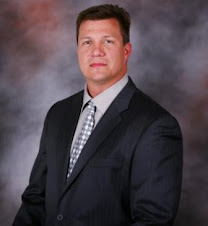- Micro unloading: There are times in the season when players will physically and mentally hit the wall. To be clear, being tired doesn’t always mean rest is needed. If we rested every time someone was tired in a sport season we would rest every day. Even my 5 year old daughter says, “Daddy my legs are tired, I’ve got to get me some energy, can we run?”. Exercise gives energy. So usually we look to activity to energize the body over the long haul. However, in reading players, occasionally I will interpret their body language, on-ice mechanics, play, mood and other variables that suggest they have hit the wall. More is not always better. At these times we will lighten the frequency of workouts, cancel post-game workouts, and implement variety in routine and exercise style. This is not scheduled precisely into the master plan. Periodization (training schedule of what and when) is more than crunching numbers into a schedule. Hitting the wall can’t be predicted with accuracy. It is a subjective assessment and we must be responsive and willing to modify schedules when it appears.
- Automatic unloading. A couple of months before play offs I implement an automatic unloading where players incur less taxing routines. This is to allow them to re-load for the home stretch so they can work hard going into play offs. Workouts heading into playoffs are intense and all about quality efforts.
- Play Offs: Players who do not dress have a responsibility to do extra conditioning on the court/field/ice and in the weight room. They may sit every game until the championship and then get the nod. For themselves and for the team, they need to be more than ready, should the opportunity arise. Also, athletes getting minimal playing time per game require conditioning, as the game action is not enough to maintain their fitness levels. Dependent on the league, playoffs can run for up to two months. Someone can lose massive amounts of fitness over 8 weeks. Going into the championship round, players want to be at their very best. Go-to players who see endless playing time each game need plenty of rest – their energy expenditure is high plus it is a war of attrition as the physical combat intensifies. However, they should do a brief strength routine. This is to maintain their strength as well as give the sense of feeling strong. Even a short, light workout provides the kinesthetic sense of having strong, tight, powerful muscles, players feel like their joints are strong and have more confidence in their durability.
- The cycle. Sport breaks the body down. Conditioning builds it back up. The trick is that each time the cycle is repeated, a player’s starting point needs to be higher each year, which leads to a better peak condition. This points to efforts during the season so that players are not deconditioned at the start of the off-season, putting themselves right back to the starting line again. Always take steps forward.
In a game, the most skilled players will look so in the first period. In double overtime, the most fit will be your top performers. Skill without fitness makes for a nice practice player. Play off performance is earned over the long haul through year-round sport-specific conditioning.





No comments:
Post a Comment